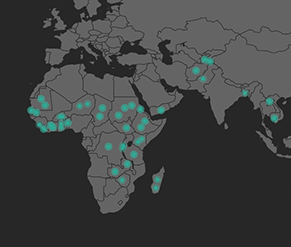20-year-old Jalale Genati has recently graduated from the Sebeta College of Teacher Education located in the region of Oromia, Ethiopia. After completing the three-year program, Jalale is excited about starting her career as a teacher with the hope to become a role model for her future students.
Jalale’s own role model was her grade 1 school teacher, who sparked her interest in reading by lending her books from the school’s small library. The strong influence from her teacher has had a lasting effect - Jalale now aspires to be a source of inspiration for her own students.
Past and present teaching methods
Now that Jalale is a teacher, she compares how modern teaching methods have improved from those her teachers applied when she was a student.
